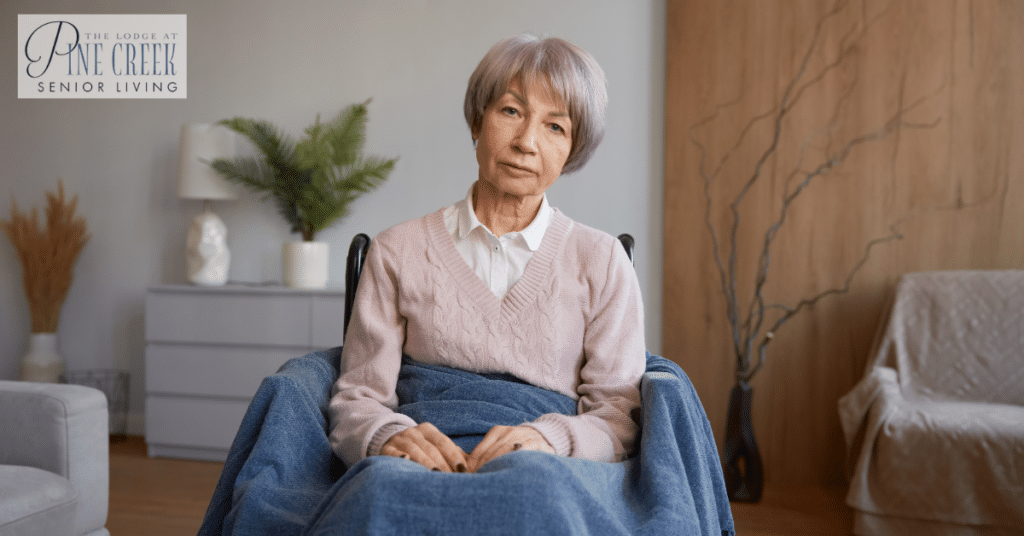Loneliness doesn't discriminate. It can find anyone, but for those living with dementia, it tends to settle in more deeply. Conversations become harder to hold. Routines shift. Old friendships fade...
Read more
How to Communicate with Memory Care Residents: Tips for Building Strong Connections

Strong relationships in memory support communities start with knowing how to connect. For memory care residents who experience Alzheimer’s or other types of dementia, talking and understanding others can become harder over time. Yet care partners who learn effective communication strategies discover they can still create moments of trust, offer genuine comfort, and develop meaningful bonds.
Understanding the Communication Needs of Memory Care Residents
Memory care residents go through cognitive changes that affect how they communicate. Dementia can make it hard for them to recall what happened yesterday, finish their sentences, or follow complex ideas. But here’s what matters – they still feel deeply. They still connect through familiar gestures, body language, and the tone of your voice.
Once care partners understand these challenges, they can approach each conversation with more patience and compassion. When everyone recognizes these communication changes, it builds a secure community. Residents know they’re in a place where people truly get them.
Practical Tips for Effective Communication with Memory Care Residents
People with dementia often understand far more than they can say out loud, so it’s important to include them in conversations. Just a few simple changes in how you communicate can make all the difference.
Lead with Patience and Empathy
Connecting with memory care residents starts with patience and real empathy. Because of cognitive decline, loved ones often need extra time to process what you’re saying and come up with a response. Taking things slow creates a calm atmosphere that helps everyone feel less frustrated.
Empathy means accepting residents’ emotions, even when their words don’t quite match what’s happening around them. Instead of correcting them, acknowledge how they’re feeling. This builds trust and helps them feel secure. When you respond with kindness and understanding, residents with dementia know they’re valued and heard.
Let Non-Verbal Cues Do the Heavy Lifting
Non-verbal communication often works better than words when connecting with memory care residents. Your posture, facial expressions, and tone of voice can show warmth and reassurance when words become elusive.
Simple things like making eye contact, offering a genuine smile, or gently touching a shoulder can build trust and connection. These quiet moments of connection speak louder than any conversation could.
Use Clear and Simple Language
Simple, clear phrases work best when talking with memory care residents because short sentences are easier to follow. Use direct statements, ask one question at a time, and give your loved one plenty of time to answer.
Don’t be afraid to repeat yourself. If a resident doesn’t understand something the first time, try saying it again using simpler words. This helps residents with dementia follow along better and feel more involved in the conversation.
Listen Actively and Validate Feelings
Listening attentively creates meaningful connections with loved ones in memory care, helping them feel truly heard and appreciated. When you really listen and show genuine interest, they know they matter. Simple things like nodding, keeping eye contact, and repeating back what they say shows you’re paying attention.
Validating feelings is just as important. Even if what a resident says doesn’t match reality, focus on the emotions behind their words. If they talk about something from the past as if it’s happening now, respond to how they’re feeling. This keeps their dignity intact and helps you connect better.
Stay Calm in Tough Moments and Gently Redirect
There will be times when communication gets tough, especially if your loved one feels frustrated or anxious. The best thing care partners can do is stay calm. A soothing voice and reassuring words can help ease tense moments.
Try redirecting their attention to something familiar or comforting – maybe a favorite photo or song. Games for memory care residents can also serve as helpful distractions during complicated moments. This shifts their focus and helps them feel better. By staying patient and keeping your cool, you can keep the conversation going even when things get difficult.
Offer Meaningful Gifts and Games to Open Dialogue
Thoughtful gifts for memory care residents can be great conversation starters. Things like photo albums, memory boxes, or items with interesting textures often awaken past memories and encourage residents to share their personal stories. These gifts create special moments and help your loved ones feel appreciated.

Engage Memory Care Residents With Familiar Activities
Getting residents involved in activities opens doors for real conversations. Simple activities that match what they enjoy can bring back memories and get them talking. Looking through old photos, for example, often leads to stories about their past and the emotions tied to those moments.
Music has incredible power here. Familiar songs can unlock memories and feelings, making it easier for residents to join in. Activities for memory care residents, like art projects, memory matching games, or puzzles, keep minds active and help people connect. These activities build a real sense of belonging for residents and cut down on loneliness, so communication feels easier and works better.
Create a Supportive and Stimulating Environment
A well-organized, supportive environment makes a big difference in how well memory care residents communicate. Daily routines and familiar surroundings help them feel secure and more ready to engage with others.
Cutting down on distractions – like loud noises or bright lights – creates calm spaces where residents with dementia can focus on conversations. Cozy, calm spots shine for private chats – they dial down distractions, letting loved ones in memory care focus more easily.
Building Stronger Connections Through Effective Communication Together
Communicating with memory care residents takes patience, understanding, and knowing what works. By using simple language, positive body cues, really listening, and acknowledging feelings, care partners can build stronger relationships with their loved ones and create a safe, supportive space. Getting residents involved in activities they like, giving thoughtful gifts, and playing appropriate games make communication better and create moments everyone can cherish. These methods make individuals facing dementia feel genuinely recognized, truly understood, and deeply respected.
If you seek a caring space that prioritizes open dialogue for your family member, schedule a personal tour at The Lodge at Pine Creek Senior Living Community in Baytown, Texas. Our safe haven builds deep connections and matches each resident’s own communication style. Within a thoughtfully arranged setting that nurtures bonds and empathy, loved ones enjoy the dedicated care and focus they need.
Related Posts
Spending time with a resident in memory care brings both joy and uncertainty for many families. When you're visiting a loved one in memory care, you want each moment to...
Read moreWhen dementia starts affecting someone you love, their world changes in ways both subtle and profound. Memory fades, daily tasks become puzzling, and familiar spaces suddenly feel foreign. Yet with...
Read moreRecent Posts
Related Posts
Loneliness doesn't discriminate. It can find anyone, but for those living with dementia, it tends to settle in more deeply. Conversations become harder to hold. Routines shift. Old friendships fade...
Read moreSpending time with a resident in memory care brings both joy and uncertainty for many families. When you're visiting a loved one in memory care, you want each moment to...
Read moreWhen dementia starts affecting someone you love, their world changes in ways both subtle and profound. Memory fades, daily tasks become puzzling, and familiar spaces suddenly feel foreign. Yet with...
Read more



